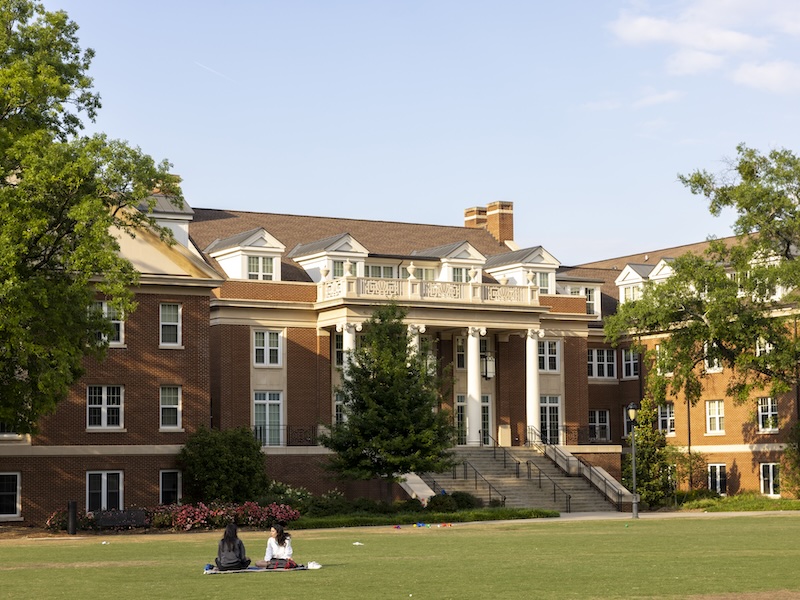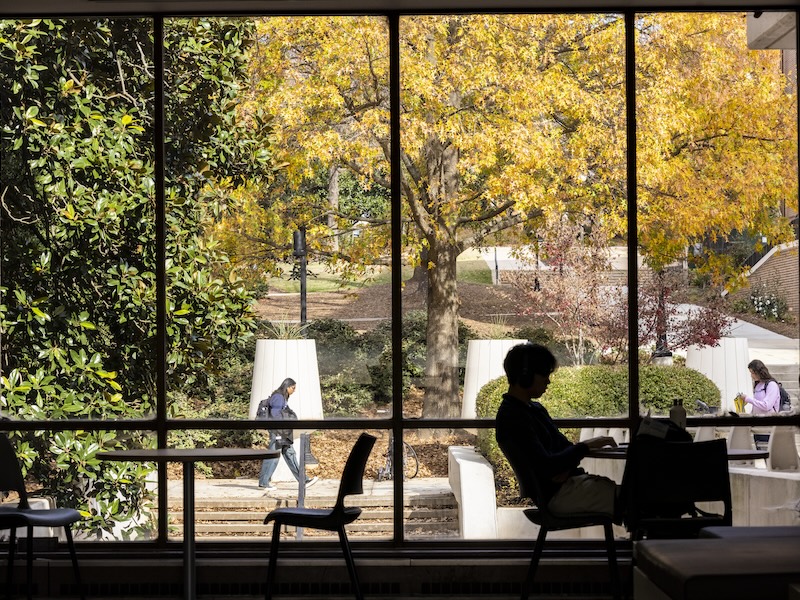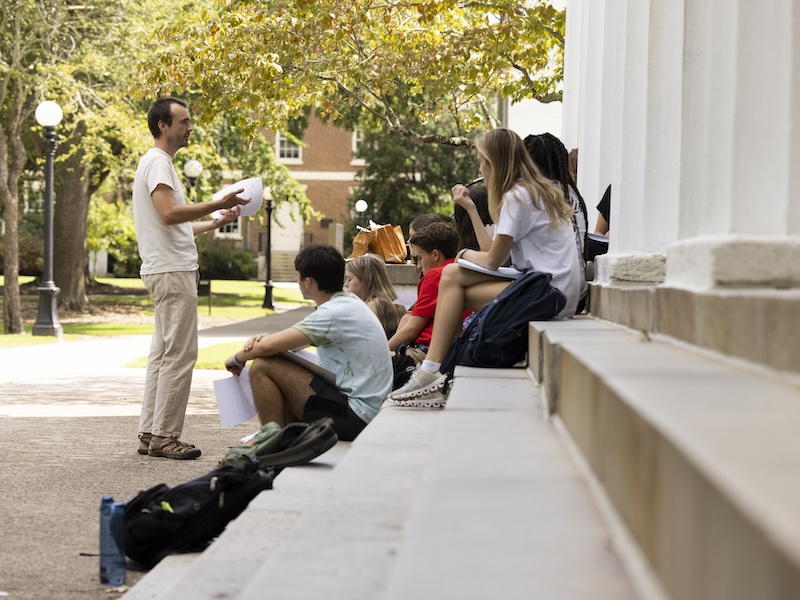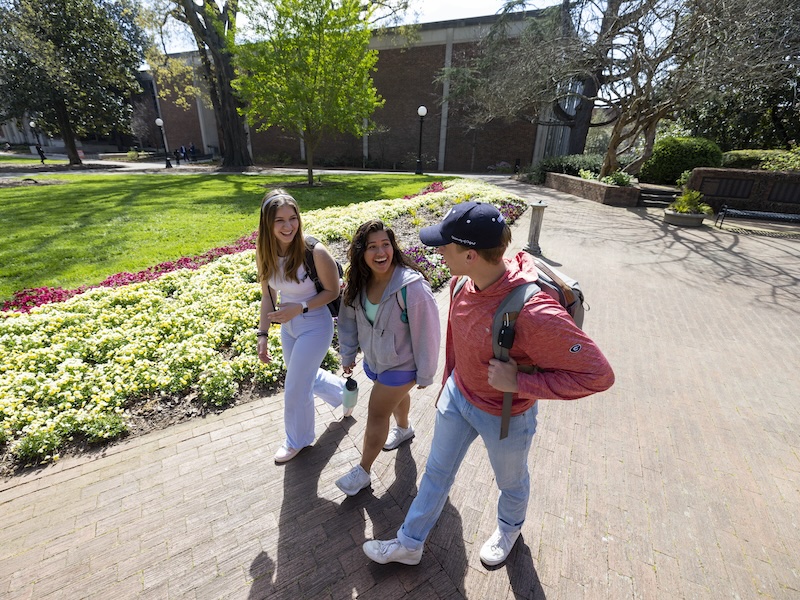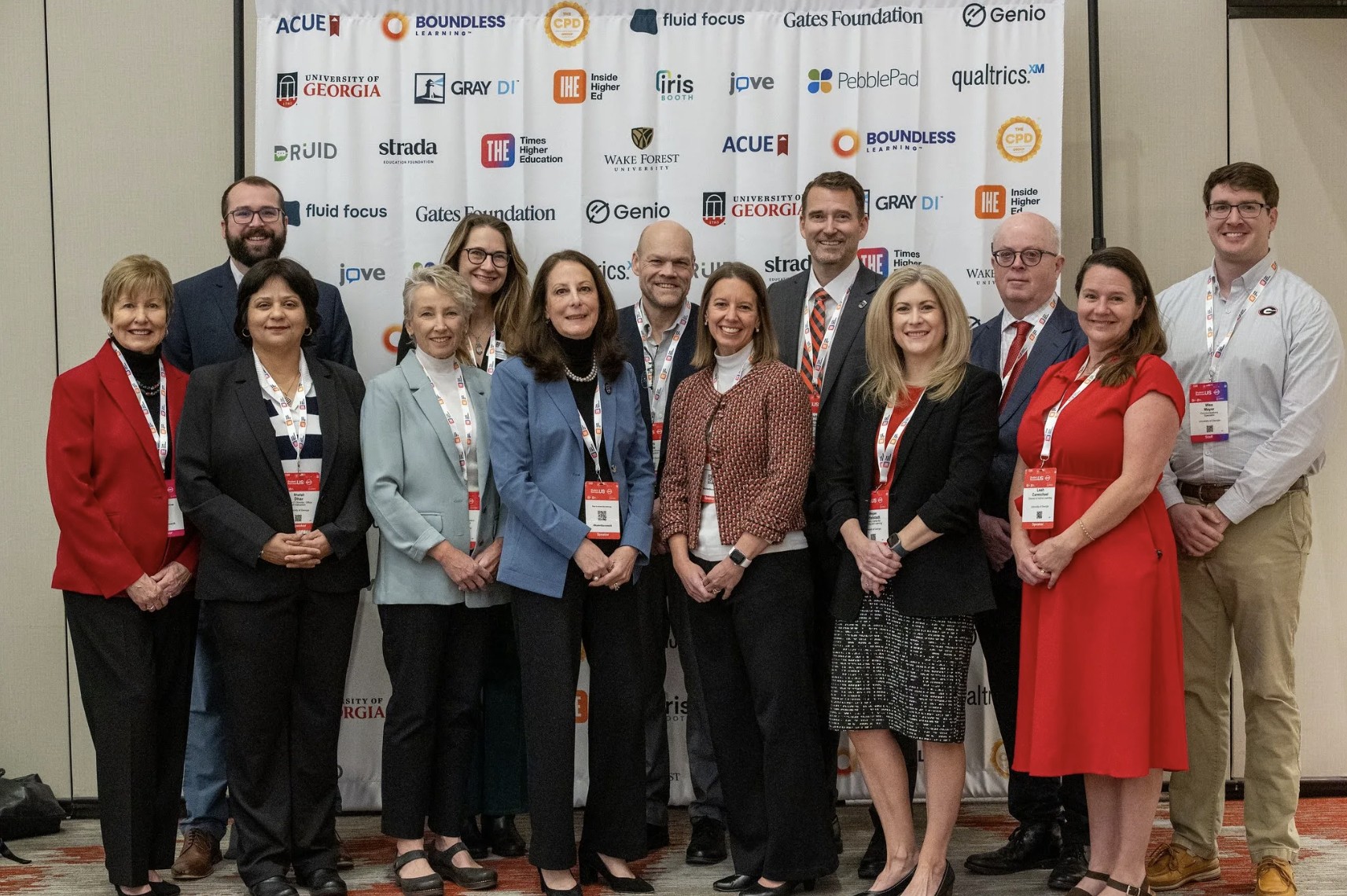What is TRIO?
TRIO programs are federally funded initiatives that empower first-generation students, students from limited-income backgrounds, and students with accessibility needs to thrive in high school, college, and beyond. At the University of Georgia, TRIO provides academic guidance, personal support, and resources that help students get to college, succeed in college, and graduate.
These programs play an important role in expanding opportunities in higher education. They support students in navigating the college experience, finding community, and achieving their academic and career goals.
Who We Serve
UGA’s TRIO programs support:
- Middle and high school students in neighboring counties preparing for college
- Undergraduate students at UGA who are first-generation, limited-income, or are registered with Accessibility and Testing
Through mentoring, academic coaching, tutoring, college prep, and leadership opportunities, TRIO helps students build resilience and a foundation for lifelong success.
Why TRIO Matters
TRIO students are future scholars, professionals, and leaders. Their stories are proof that when given the tools and support to succeed, students from all backgrounds can thrive. The success of TRIO students reflects the power of access, community, and persistence in education.
TRIO at UGA
UGA is home to seven federally-funded TRIO programs, both pre-collegiate and collegiate:
- Talent Search
- Upward Bound (2)
- Upward Bound Math-Science
- McNair Scholars
- Student Support Services
- Student Support Services STEM-H
Professional Organizations and Associations
Council for Opportunity in Education (COE)
The Council for Opportunity in Education is a national organization that works to aid underserved populations receive higher education. COE also serves as the political voice for educational institutions, programs, and personnel. The council works in conjunction with agencies that host Federal TRIO Programs to aid first-generation/low-income students enter college and graduate.
Source content provided by: Council for Opportunity in Education (www.coenet.us)
Southeastern Association of Educational Opportunity Program Personnel (SAEOPP)
The Southeastern Association of Educational Opportunity Program Personnel (SAEOPP) is the regional association of TRIO program personnel. It provides its members with the necessary skills and techniques to help underrepresented populations receive higher education. SAEOPP serves Alabama, Florida, Georgia, Kentucky, Mississippi, North Carolina, South Carolina, and Tennessee.
Source content provided by: Southeastern Association of Educational Opportunity Program Personnel (www.saeopp.org)
Georgia Association of Special Programs Personnel (GASPP)
The Georgia Association of Special Programs Personnel is the state association of TRIO program personnel. GASPP allows its members to network with other TRIO personnel in the state and provides its members with the skills needed to help underrepresented populations receive higher education.
For more information, visit (https://www.georgiatrio.com/)


